By Veronica Pleasant, OUR Peer Research Ambassador
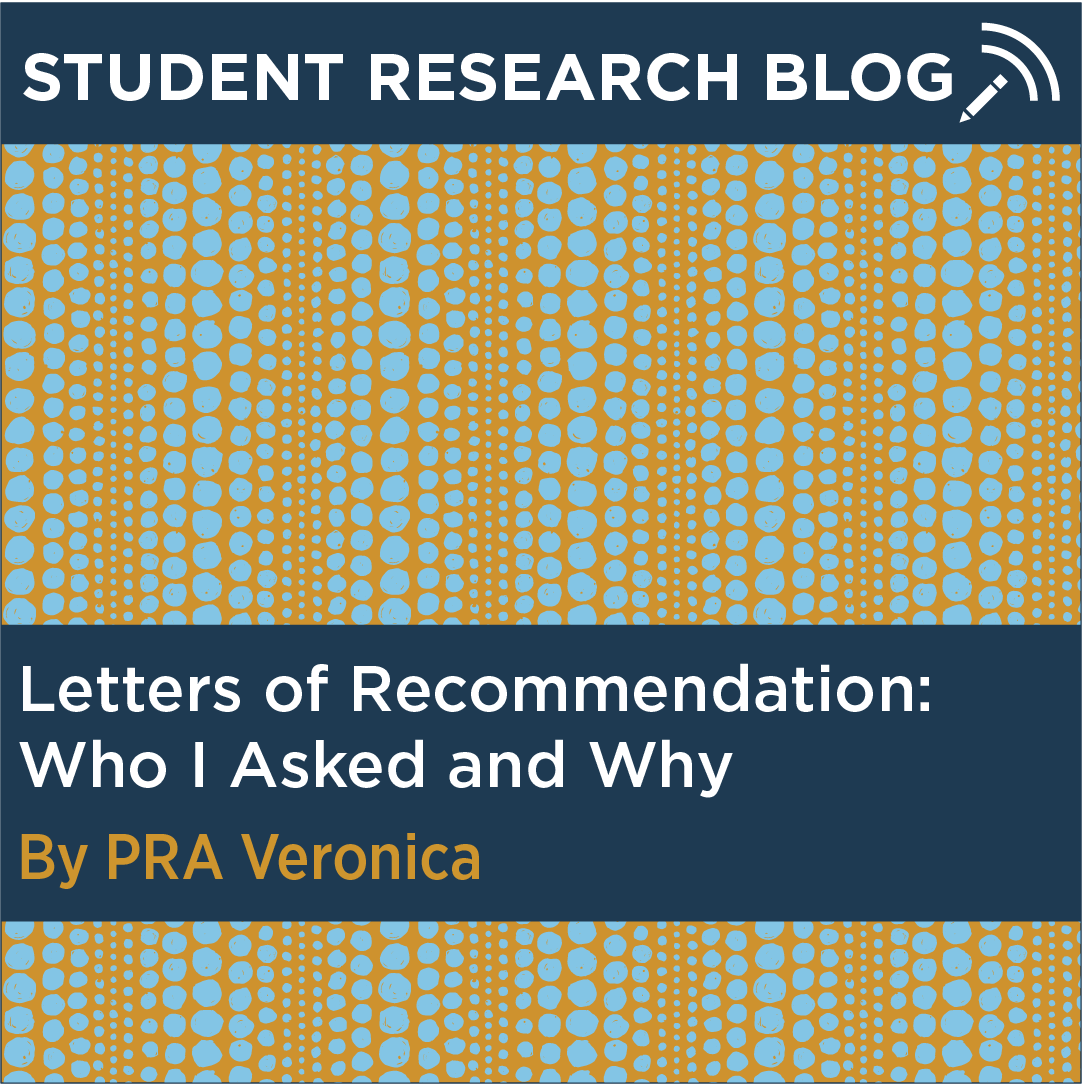 If you’re a senior, chances are you’re considering either graduate school or full time employment after graduation. If you chose the former, then you probably need a few letters of recommendation for your applications. Who do you ask? How do you form relationships with faculty who can write you letters of recommendation?
If you’re a senior, chances are you’re considering either graduate school or full time employment after graduation. If you chose the former, then you probably need a few letters of recommendation for your applications. Who do you ask? How do you form relationships with faculty who can write you letters of recommendation?
If you’re reading this and you’re a freshman, sophomore, or even a junior, keep the above questions in mind as you continue on.
As a recent applicant to veterinary school, as well as graduate school, I know asking for letters of recommendation can be terrifying. I felt totally underqualified and like a pest. However, I’ve spent the majority of my undergraduate career building relationships with mentors, and because of that I had plenty of people to turn to for recommendations. Here’s an overview of who I asked for recommendations and how I built those relationships. Continue reading →
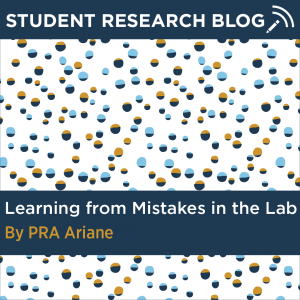 We’ve all heard the saying, “everyone makes mistakes.” But when you’re the one who’s to blame, it’s can be harder to remember that you’re not alone. Over the past two years working in a lab at UConn, I’ve made many mistakes and been forced to face the consequences. In this post, I share with you some of my biggest ones in the hopes that we can all feel a little less alone the next time we mess up. Continue reading
We’ve all heard the saying, “everyone makes mistakes.” But when you’re the one who’s to blame, it’s can be harder to remember that you’re not alone. Over the past two years working in a lab at UConn, I’ve made many mistakes and been forced to face the consequences. In this post, I share with you some of my biggest ones in the hopes that we can all feel a little less alone the next time we mess up. Continue reading 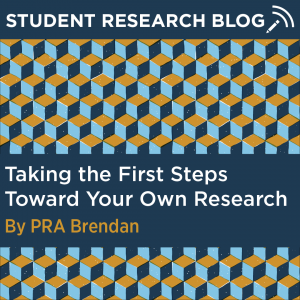 Since finishing a research apprenticeship with a faculty mentor I have wanted to start my own research project, but I have struggled to figure out how. I’ve known for a while that I want to explore ways to utilize photography to help with environmental efforts to preserve natural parks and resources in the West, but it seemed like an enormous project to even begin. I became overwhelmed as I tried looking into past studies, professors on campus who work in this area, and even explored internships, yet it just was not coming together.
Since finishing a research apprenticeship with a faculty mentor I have wanted to start my own research project, but I have struggled to figure out how. I’ve known for a while that I want to explore ways to utilize photography to help with environmental efforts to preserve natural parks and resources in the West, but it seemed like an enormous project to even begin. I became overwhelmed as I tried looking into past studies, professors on campus who work in this area, and even explored internships, yet it just was not coming together. 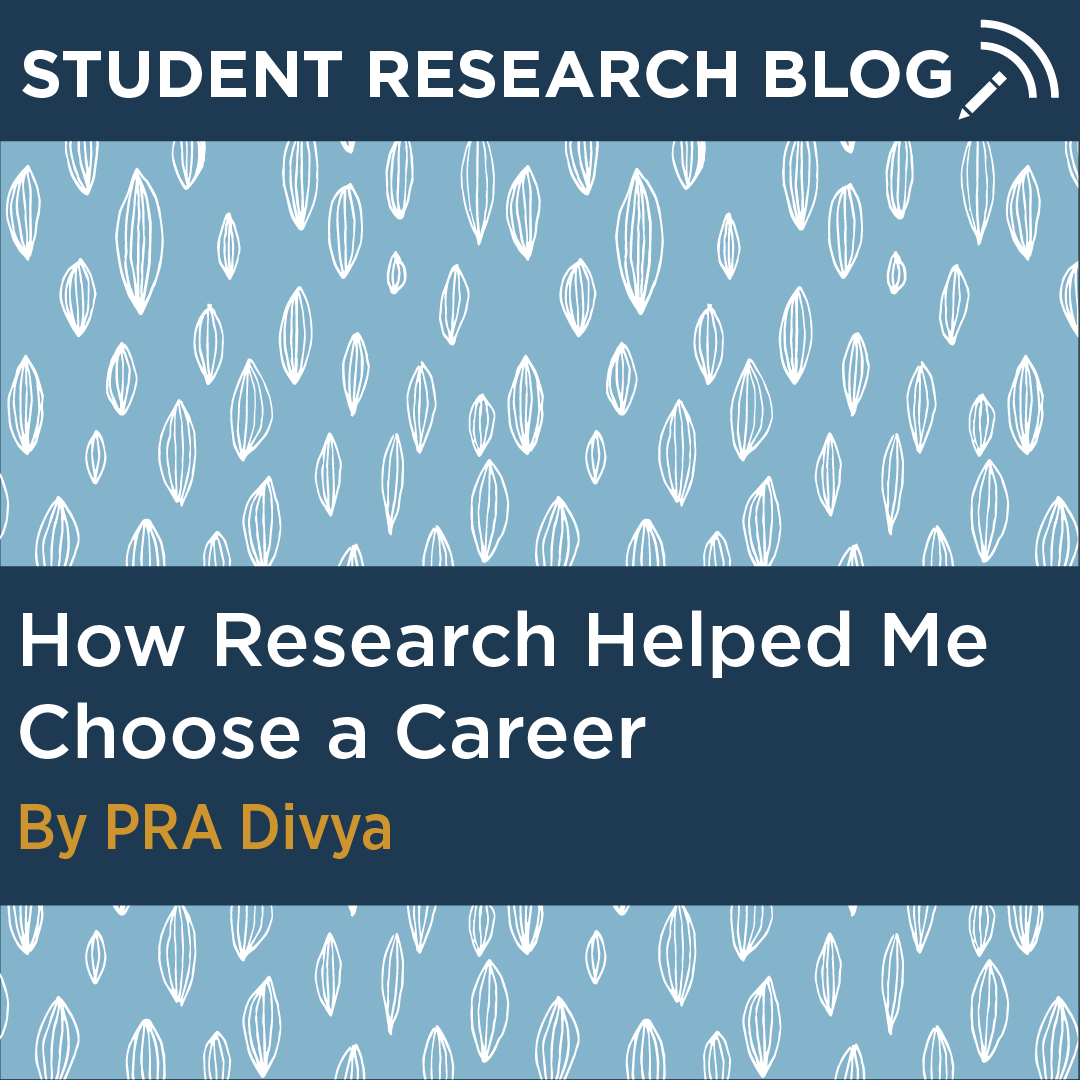 As an undergraduate student there is a lot of pressure on you to figure out exactly what you want to do with the rest of your life at such a young age. Enrolling at UConn at 17 years old, I had no clue what some of the 110+ majors offered here even meant (Cognitive Science? What?) let alone having to choose one.
As an undergraduate student there is a lot of pressure on you to figure out exactly what you want to do with the rest of your life at such a young age. Enrolling at UConn at 17 years old, I had no clue what some of the 110+ majors offered here even meant (Cognitive Science? What?) let alone having to choose one.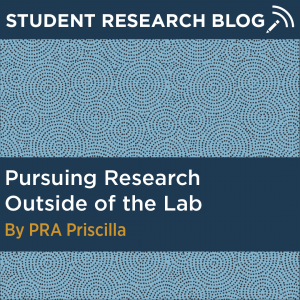 When attending such a well-known research university, it is difficult to go a day without hearing the seemingly hackneyed expression “get involved in research early on.” So often, this is interpreted to mean you should get involved in a professor’s research lab from freshman or sophomore year and continue this research until senior year. Although this a great form of a research experience, it is not the only form of undergraduate research.
When attending such a well-known research university, it is difficult to go a day without hearing the seemingly hackneyed expression “get involved in research early on.” So often, this is interpreted to mean you should get involved in a professor’s research lab from freshman or sophomore year and continue this research until senior year. Although this a great form of a research experience, it is not the only form of undergraduate research.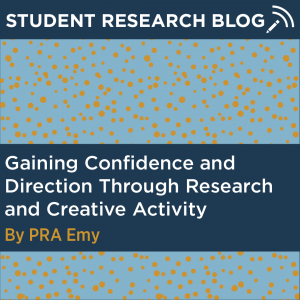 Recently, I have been reflecting on my experience doing creative activity and research. I have gained so many valuable things from writing and illustrating a comic book through an IDEA grant. I’ve built amazing relationships with mentors, I’ve gained technical skill, but most valuable of all, I’ve gained confidence that I want to pursue a career in narrative illustration.
Recently, I have been reflecting on my experience doing creative activity and research. I have gained so many valuable things from writing and illustrating a comic book through an IDEA grant. I’ve built amazing relationships with mentors, I’ve gained technical skill, but most valuable of all, I’ve gained confidence that I want to pursue a career in narrative illustration. If you’re a senior, chances are you’re considering either graduate school or full time employment after graduation. If you chose the former, then you probably need a few letters of recommendation for your applications. Who do you ask? How do you form relationships with faculty who can write you letters of recommendation?
If you’re a senior, chances are you’re considering either graduate school or full time employment after graduation. If you chose the former, then you probably need a few letters of recommendation for your applications. Who do you ask? How do you form relationships with faculty who can write you letters of recommendation?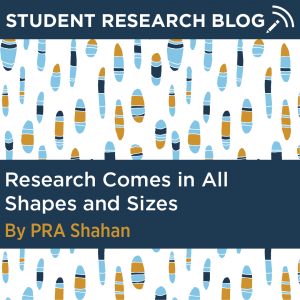 Research happens in a lab, on a bench, with a bunch of microscopes and pipettes and bottles of various liquids on the side. Right? Sounds right to me…or at least it did. Research is so much more than that. It just might take a while before you realize that.
Research happens in a lab, on a bench, with a bunch of microscopes and pipettes and bottles of various liquids on the side. Right? Sounds right to me…or at least it did. Research is so much more than that. It just might take a while before you realize that.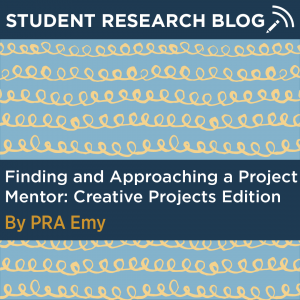 When I decided to apply for an IDEA grant, one step in the process really intimidated me. That step was approaching a project mentor. In creative endeavors, finding and approaching a project mentor works a little differently than in research. While there are no publications to read or labs to shadow in, there are artist statements, studio practices, and past work to learn about. These tips can help you select the right mentor, prepare for your first meeting, and ensure that you forge a relationship that will best serve your creative endeavors.
When I decided to apply for an IDEA grant, one step in the process really intimidated me. That step was approaching a project mentor. In creative endeavors, finding and approaching a project mentor works a little differently than in research. While there are no publications to read or labs to shadow in, there are artist statements, studio practices, and past work to learn about. These tips can help you select the right mentor, prepare for your first meeting, and ensure that you forge a relationship that will best serve your creative endeavors. 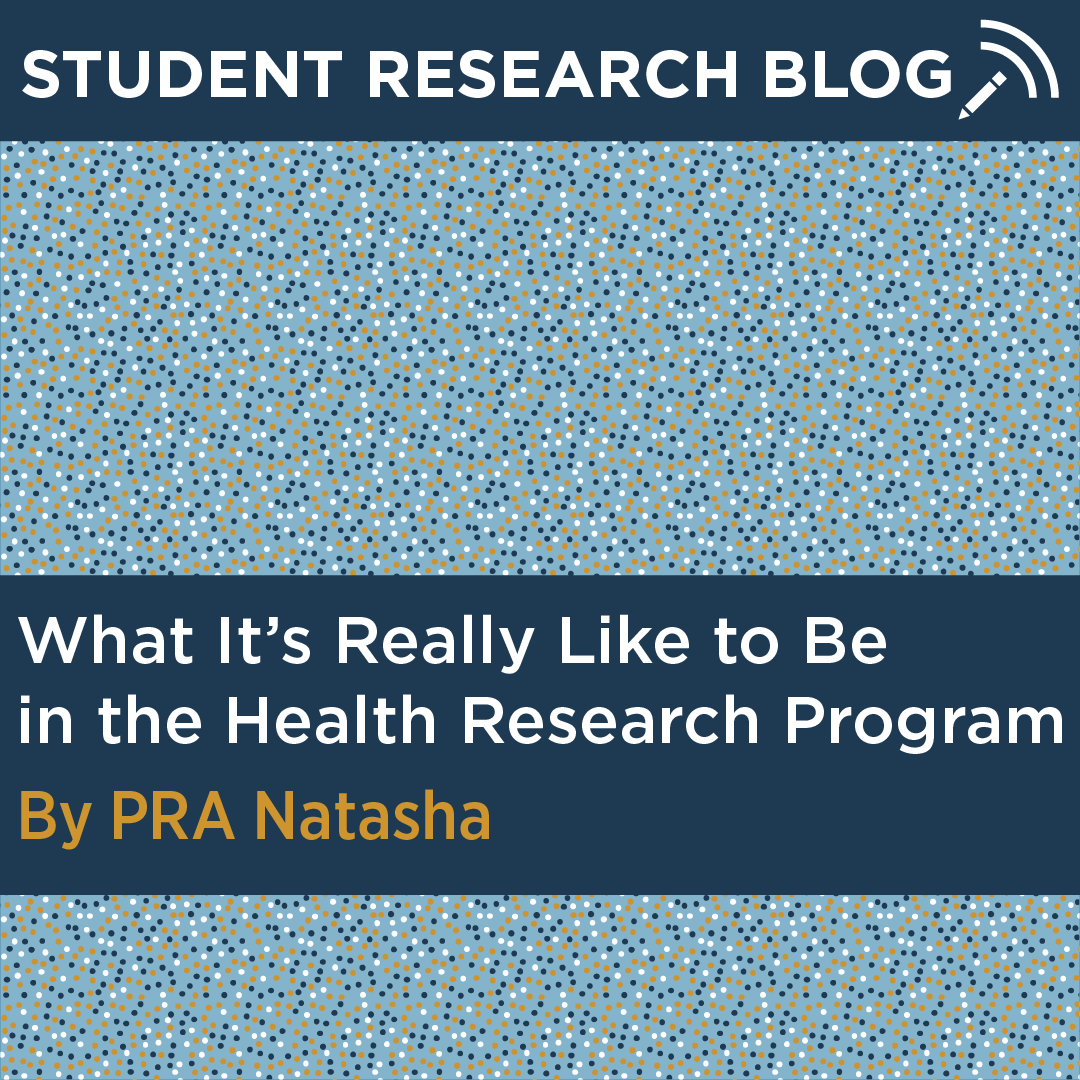 Are you interested in the
Are you interested in the 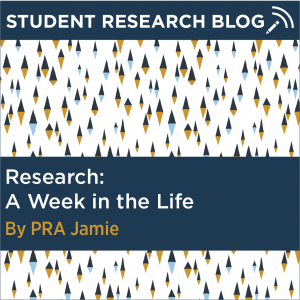 The idea of “doing research” sounds so vague and pretty daunting as an undergraduate student. For people in the sciences, we usually picture a person in a white coat with a beaker doing… something. As a freshman, I wasn’t sure what those people in lab coats were actually doing. I assumed it was important but really didn’t understand it.
The idea of “doing research” sounds so vague and pretty daunting as an undergraduate student. For people in the sciences, we usually picture a person in a white coat with a beaker doing… something. As a freshman, I wasn’t sure what those people in lab coats were actually doing. I assumed it was important but really didn’t understand it.